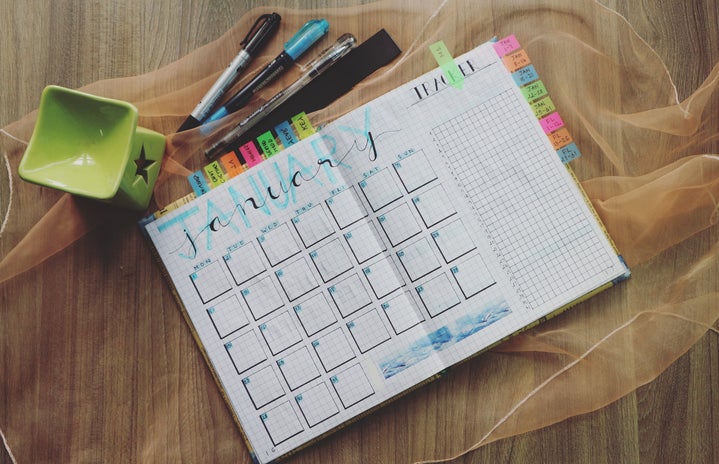Realising that we’re coming close to the end of the semester can be a daunting time for everyone. Assignments are piling up, exams are getting closer, and the stress can all become a bit too much. Sometimes you just need to sit back and take a deep breath and plan your study schedule right!
Studying isn’t a scary thing and it definitely should not add to your stress. You need to look after your mental health girl. One of the easiest things you can do for yourself is to create a realistic study timetable, one that is achievable and also gives you the free time you deserve to recharge and be ready again for Monday morning, and of course be prepared for those exams.
We asked our readers for their tips and tricks for creating an achievable study schedule along with some extra tips to help you, not only this semester but also for future semesters and study periods. There is no need to worry or stress, take a moment to figure out what study plan works best for you and go with that.
One of the girls, Lavina, suggested adding a quick study session during your lunch breaks or breaks between lectures. A quick round of going over notes and highlighting the important things is better than nothing especially if you have a jam-packed day of lectures. Obviously, eat your lunch and take a break from the college work, but even a quick 15-minute quick-fire study session can help a lot in the long run.
Another tip Lavina shared was to make sure to finish your study day by 8 pm. This is so important to remember because as the day goes on the more tired you become, the less your brain will take in when studying. Getting a good night’s sleep is important in order to recharge your brain and if you’re sat staring at a laptop until unholy hours, you may not remember everything you have taken in.
A tip our lovely podcast coordinator, Angela, shared kind of ties in with the previous advice. If for some reason you are unable to get all your work done you’ve laid out on a given day and it’s coming up to the time you said you would finish at, don’t fret! Just add it to the end of your study timetable.
If you have a free hour or two on the Saturday of that week put it in to complete then. Sometimes it’s no harm to put aside a few hours on a Saturday to complete somethings you were unable to do during the week. Especially in the run-up to the exam period, it will relieve stress and you won’t be cramming everything in together on one day. But remember, keep a day completely free from all college work to recharge and relax.
Another tip that was shared was to not plan your study session in chunks. Do 30 minute or 1-hour intervals at a time with 15–20-minute breaks in between. Everyone is different, so set out study intervals that work for you. You don’t want to feel drained or zombified from sitting and absorbing information for hours on end so spread your study time out.
One of the most important things to remember when it comes to studying is to just breathe and try not to stress. It’s a stressful time for everyone but if you find a study timetable or schedule that works for you go for it! Never do something unrealistic. Also never use your bed to study, have a separation between your studying and relaxing spaces.
Don’t stress you are doing amazing!



